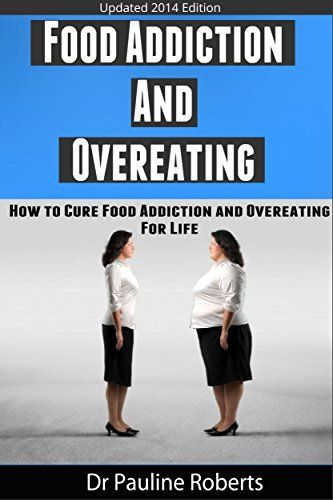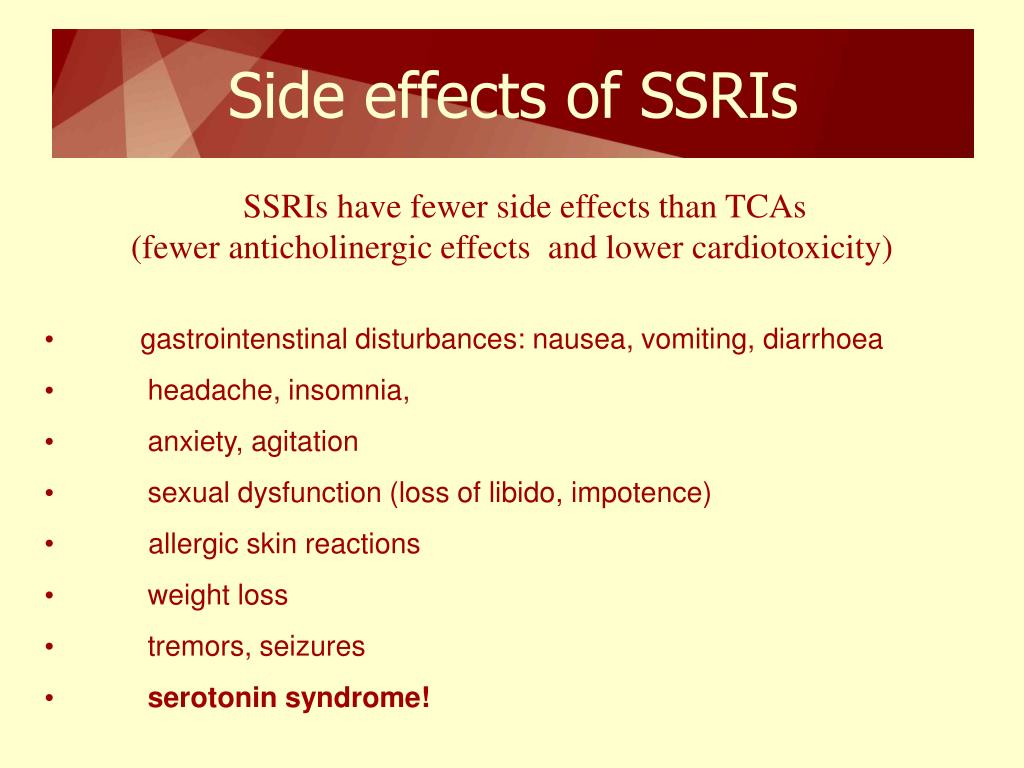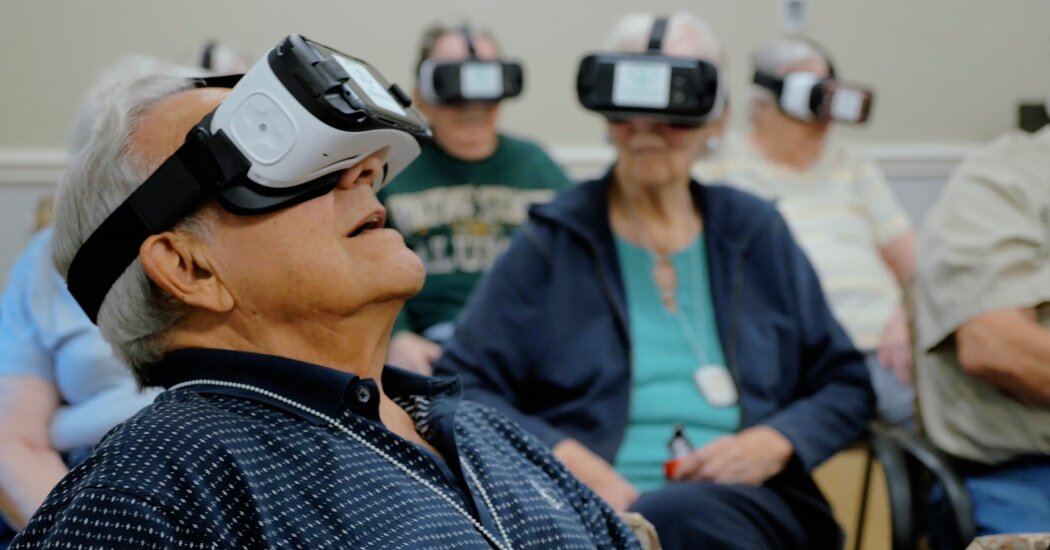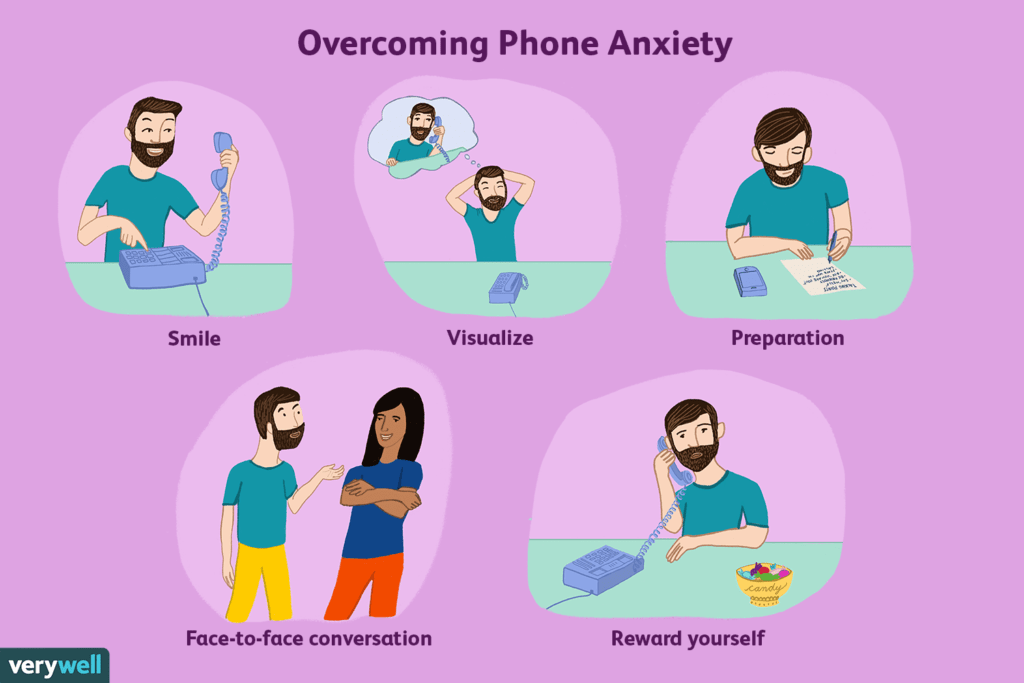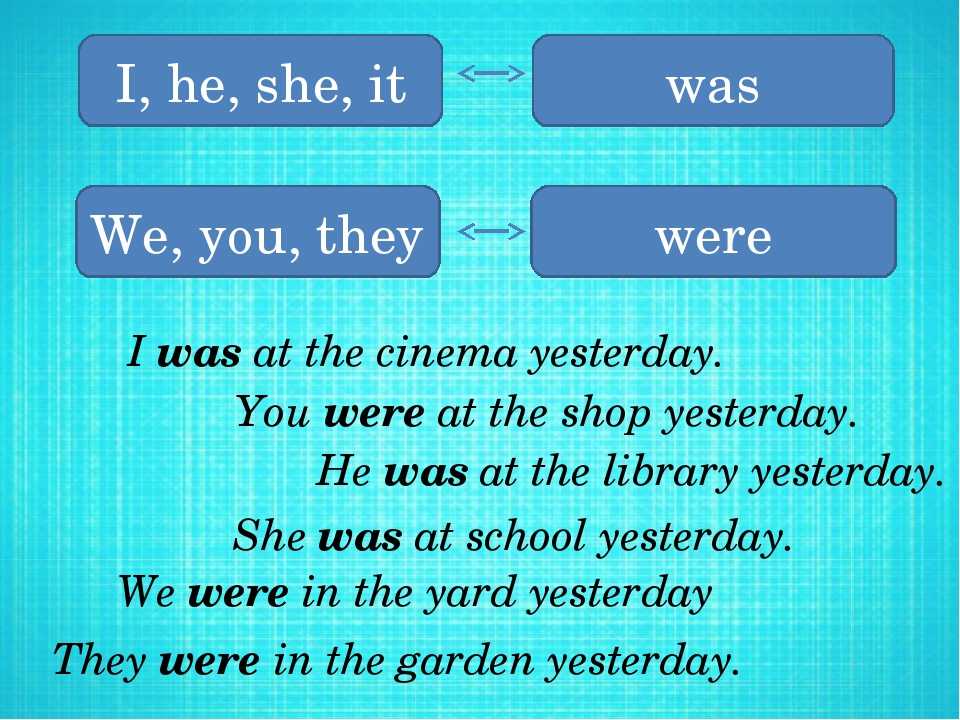How do i stop food addiction
10 Tips to Beat Food Addiction
Skip to content 10 Tips to Beat Food AddictionAre you are self confessed chocoholic? Are you addicted to sweet foods? It’s a pretty common assumption that sugar is ‘addictive’, just like substance or alcohol abuse, but is this actually the case?
I’ve definitely had moments when I’ve craved chocolate or ‘needed’ something sweet after dinner so I can relate to the notion of needing a ‘fix’.
Food addiction?Within the scientific community there’s lots of disagreement on whether or not certain foods are addictive, so a definition for food (or sugar) addiction doesn’t actually exist.
In the end, I believe it really doesn’t matter what the definition is, or if true food addiction really exists. The reality is that food has become much more apart of our lives than just fuel for our bodies. It’s pleasure for our soul, it picks us up when we are down (physically and emotionally), we celebrate the good, bad and boring times with it and it makes us feel good.
I love the taste of ice cream, salty chips and crackers, cheese and wine. Chocolate is the ultimate sensory experience and all of my favourite meals have gained said status due to their inarguably good taste!
One of the reasons scientists have decided to include sugar into the list of dependance items is because it activates the pathway in the brain that relates to ‘reward’, which is also activated by addictive drugs. When it comes to food, it’s the ‘rewarding’ of ourselves that we like.
I went through a phase in my nutrition career when I labelled certain high sugar, salt or fat foods as ‘treat’ foods. This meant that they were OK, every now and then, as a treat, but shouldn’t be eaten every day. The problem I’ve discovered with this is that we live in a busy, stressful and often unhappy world and thus a daily (or more often) treat is a nice escape from our mundane, depressed lives.
Sorry if I’m sounding rather morbid, but it’s dawned on me that calling ‘junk’ foods ‘treat’ foods may be counter productive. I don’t know about you but treats make me happy and I like to feel happy as often as I can.
I don’t know about you but treats make me happy and I like to feel happy as often as I can.
What if healthy food was called ‘treat’ food? What if we actually treated ourselves daily with wholesome food that made us feel good about ourselves and not full of regret and self loathing 5 mins after we’ve eaten it? Junk food shouldn’t be called treat food. It really should be called ‘sometimes’ food. And treating ourselves should happen daily but in a way that enhances our physical and emotional wellbeing.
So what about the feelings of dependence? What about the cravings? What about the urges for food that you just can’t resist? What are you supposed to do about that?
Research has shown that palatable food (food that tastes amazing) does cause the release of dopamine (a feel good chemical) in your brain. So certain foods do make you feel better than others, just because they taste good. Due to the fact that we would prefer to feel good rather than bad we actively seek out that food again to re-experience the ‘feel good’ factor. Is it addictive? Probably not, but nonetheless when you’ve medicated your sadness, stress, disappointment and misery with food for 20 years, it can be a hard habit to break.
Is it addictive? Probably not, but nonetheless when you’ve medicated your sadness, stress, disappointment and misery with food for 20 years, it can be a hard habit to break.
I think the biggest part of breaking your dependance on sugar or other foods that you just can’t resist lies in your understanding of the reward.
There are 3 different aspects to a reward: liking, a pleasant experience and wanting. Wanting is the motivation to seek out the reward to experience it again. Research suggests that dopamine is released in response to wanting. It’s also released in such a way that we experience the ‘rush’ in anticipation of receiving the reward, not afterwards.
So perhaps this explains why sitting in a cafe and staring at the cakes in the window makes the urge to ‘reward’ yourself feel so good but after you’ve eaten it you realise that it was over-rated. I know I’ve definitely felt that way. Food is an immediate indulgence. You only want it in the moment and then once the moment’s past you don’t feel like you’ve missed out because it’s not right in front of you any more.
Guess what other things activate your brain’s reward pathways? Music, humour, winning, expecting to win a prize, attractive or smiling faces, a mother recognising their child and (my favourite) being ‘in love’. This fact alone suggests that food isn’t addictive in the same sense as drugs but actually elicits a normal response that occurs in many of life’s pleasurable experiences.
How to beat it…There’s no quick fix or magic pill to make you stop wanting sugar or foods that you crave. Ultimately, you crave what you regularly feed yourself. So… the only way to reduce your cravings is to take a break. If you regularly have something sweet to eat after dinner, it’s very natural for you to always feel like eating something sweet after dinner. You’re in a bad habit, that’s all. Research has shown that fasting particular foods doesn’t increase the cravings like it does with true drug addiction, it actually reduces them.
Changing your habits and behaviour is hard work.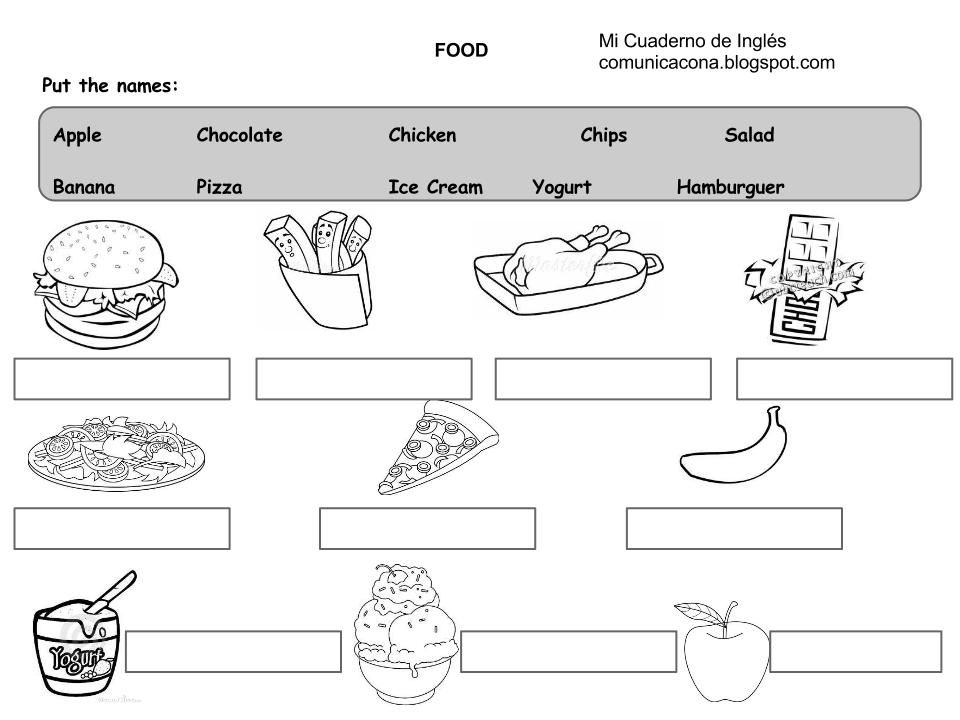 So you need to get prepared. Here are are few tips to help you beat the sugar high and get in control of your eating.
So you need to get prepared. Here are are few tips to help you beat the sugar high and get in control of your eating.
Change – real change – requires that you give up one aspect of your life or behaviour for the sake of something better. In the end you have to decide that losing weight or changing your eating habits is more important to you than the foods that need to take a back seat.
2. Precisely articulate what triggers your cravingsKnowing what triggers your desires for certain foods helps you prepare for those moments before they happen. If you tend to eat when you are stressed, then instead of reaching for a chocolate bar when you walk away from your desk, bring your sneakers and go for a walk. When I’m feeling sad and tempted to eat for no reason, I take a shower and wash my hair which really helps me feel much better.
3. Make a meal planBeing prepared with your meals is really important when it comes to changing your eating habits. For further reading and a free download check out my article: The Benefits of Meal Planning.
For further reading and a free download check out my article: The Benefits of Meal Planning.
This is something that you do instead of your bad eating habit. You see, you can’t stop one habit easily without replacing it with another one. For example, if you like to have something sweet to eat after dinner, try replacing dessert or chocolate with a flavoured herbal tea. If you get bored during a certain point in the day instead of reaching for an office fundraiser or buying a blueberry muffin, why not plan the next weeks worth of meals and exercise sessions. Maybe you need a hobby. For further reading, check out my article on boredom eating.
5. Write out and regularly re-read your goalsSometimes we just need to be reminded of what it is that we want more. If weight loss is your goal than write down your goals and put them on the fridge, pantry or mirror in the bathroom where you can regularly see them.
This one is simple. If it’s not available you can’t eat it.
7. Get you’re family & friends on boardEnlisting the help of people close to you will help you stay on track. We need to be accountable to someone when we are making tough lifestyle adjustments. Make sure these people are positive and encouraging and stay away from junk food enablers.
8. Keep a food diaryA large proportion of our eating habits happen without us even being aware of them. Mindless eating is a huge problem in our busy multi-tasking lives. Eating while doing other tasks often results in over consumption or eating even when you’re not hungry. Keeping a food diary will help you raise awareness of exactly what you put in your mouth and highlight some of your bad habits.
9. Explore non-food rewardsLike I said earlier, we all like to feel good. Find a way to reward yourself that isn’t food related. New clothes, a new book, a hair cut or treatment, a massage… the list is endless, so take the time to sit down and work out nice things that you can reward yourself with that wont add to your waistline.
New clothes, a new book, a hair cut or treatment, a massage… the list is endless, so take the time to sit down and work out nice things that you can reward yourself with that wont add to your waistline.
Fad dieting, severe restriction and skipping meals will predispose you to binge eating and overconsumption at your next meal time. Don’t do it. Follow a healthy, well-balanced meal plan with protein, high fibre carbohydrate, healthy fats and lots of fruit and vegetables.
The most important thing to remember is to not give up. You want to change your eating habits and lifestyle forever, so give yourself a break if you have a relapse into old habits and try again tomorrow. The great thing about life is that it’s never too late.
Here at The Healthy Eating Hub we are keen to help you kick your food addiction.
If you’d like further help with your nutrition please click below:
Ongoing nutrition support
Registered Nutritionist.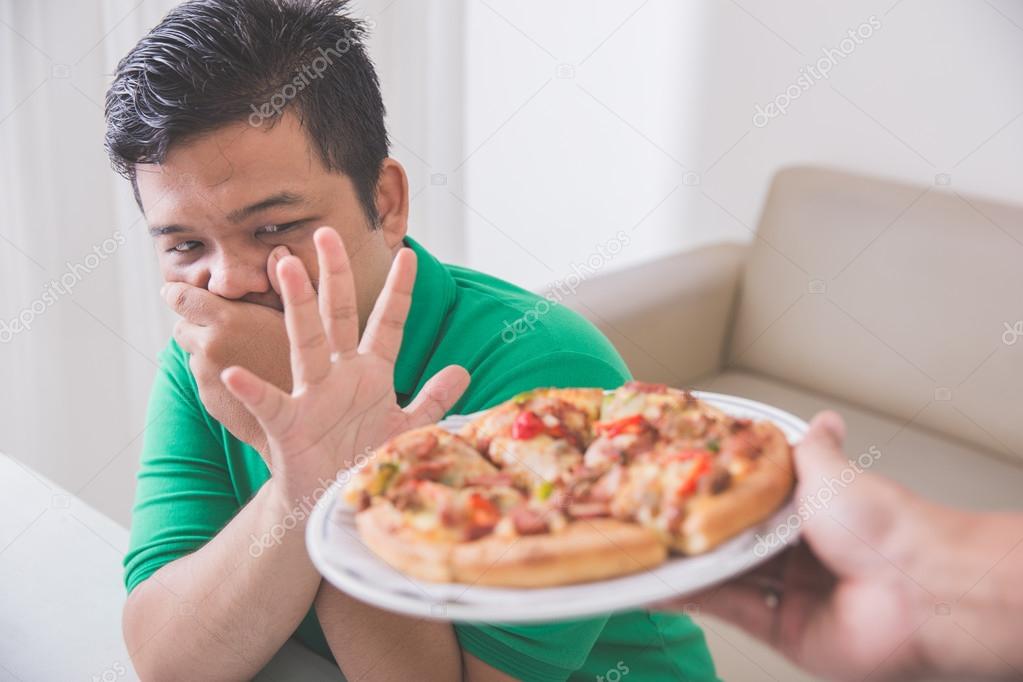
Go to Top
How to Overcome Food Addiction: The Best Solutions
We all know how delicious junk foods, ice cream, or processed foods are. They are called comfort foods for a reason, and you can easily get addicted to them. But did you know that these comfort food have certain effects on the brain that make it hard for other people to avoid them?
The scary part is that food addiction is similar to substance abuse disorders or drug addiction. It is real, and it’s a hard habit to break, no matter how hard some people try. This article is all about food addiction and how to overcome it.
What Is Food Addiction?
Food addiction is defined as unhealthy habits or addiction to junk foods (for example, ice cream, foods high in fat, chips, or sugary drinks). Evidence shows it is similar to other eating disorders like compulsive overeating and binge eating disorder. This explains why many people with food addiction find it hard to adhere to healthier diets.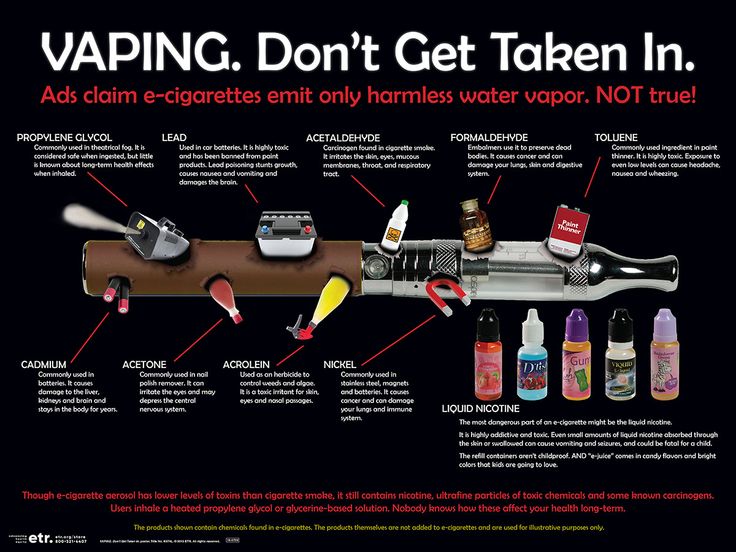 They may develop obesity for this reason.
They may develop obesity for this reason.
The Science Behind Food Addiction
Food addiction, as mentioned earlier, is thought to be similar to drug addiction. What is the science behind this? It was found that the neurotransmitters in the brain of persons with a substance abuse disorder are the same neurotransmitters that affect people with food addiction.
Processed foods have negative effects on the reward centers of the brain. These effects are the responsibility of the neurotransmitter called dopamine. Food addiction is a combination of lacking the willpower to control oneself to eat junk foods and the dopamine process in the brain.
Symptoms of Food Addiction
There are no blood tests or laboratory exams that can diagnose the existence of food addiction. Like other addiction disorders, the diagnosis of food addiction is based on the person’s behaviors. Here are the symptoms of food addiction:
- Frequent food cravings despite being full
- Eating big servings of the craved food much more than the intended serving (e.
 g., telling yourself to drink just one glass of soda but ending up drinking the whole bottle in one sitting)
g., telling yourself to drink just one glass of soda but ending up drinking the whole bottle in one sitting) - Eating certain foods up to the point that you are excessively full or about to throw up.
- Feeling guilty after overeating but excessively eats again
- Making excuses why giving in to a food craving is a good idea. (using stress, monthly period, or food as a reward as an excuse to give in to their food craving)
- Repeatedly trying to quit food addiction but is unsuccessful in doing so
- Hiding from others when eating unhealthy foods or hiding certain foods from their partner or family
- Finding it hard to control themselves from eating unhealthy foods despite knowing the negative consequences caused by food addiction (e.g., weight gain, obesity, heart disease)
Can you relate to at least four signs above? You should start to worry about having a food addiction. But if you have six signs or above, go seek professional help because it’s most likely food addiction.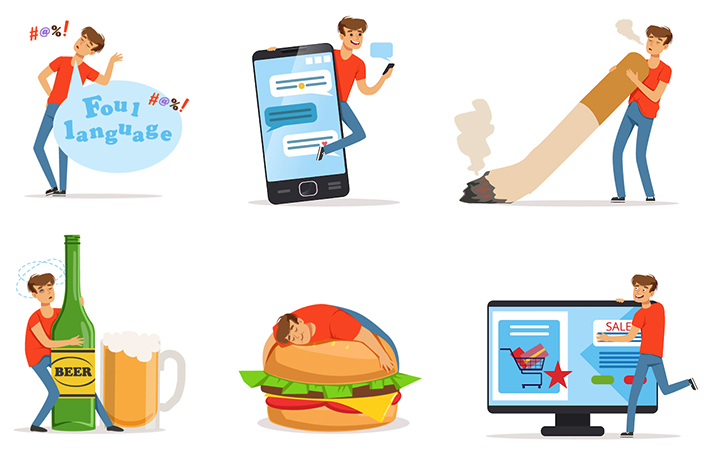
Tips for Overcoming Food Addiction
Food addiction recovery will take a lot of willpower and sacrifice to overcome. It may take weeks or months, but you have to believe in yourself to overcome it. Everybody has different food cravings, and breaking a food addiction is going to be different for everyone. But here are some tips you can start with:
1. Make a List (or Two or Three)
Start to change your lifestyle by writing a list and coming up with a plan. Get a notebook, journal, or notepad and write your lists there.
- List down your personal goals (how to overcome food addiction, weight loss goals, how you can avoid your junk food triggers, how to boost your self-esteem, if you need treatment, or become just overall healthy)
- Create a list of the unhealthy foods, addictive foods, or meals you should avoid.
- Write down the fast food places you should avoid or healthy restaurants you can eat in within your area.
- Make a list of the healthy foods you can eat.
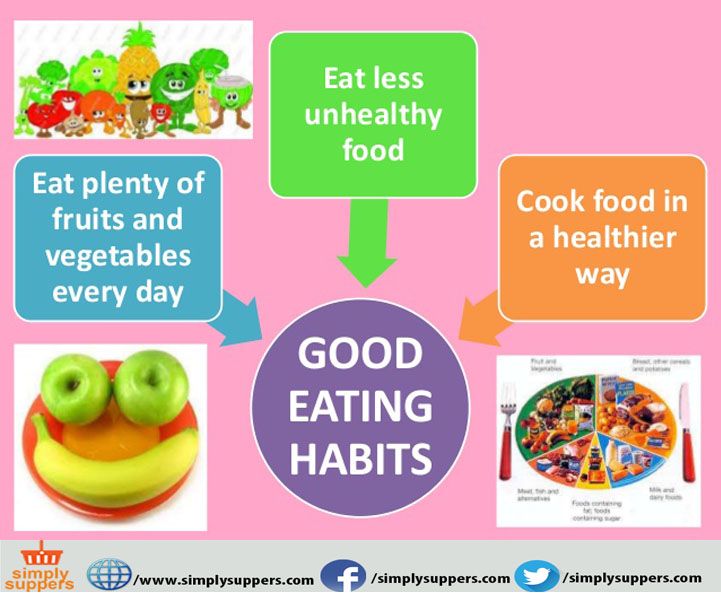
Every time you have a craving or want to eat, look at these lists. Look at the foods or fast food chains you must avoid and the choices of healthy foods you can eat. Make it a habit to check your list every day so you will be reminded of your goals.
It is important to remember not to go on a restricted diet for at least 1–3 months if you’re on the journey of recovery from food addiction. Overcoming food addictions is already hard enough. Adding diet restrictions and hunger will make the recovery process even harder.
2. Avoid Alcoholic Drinks and Caffeine
As much as you can, avoid alcoholic drinks and caffeinated beverages (coffee, hot chocolate, or soda). Evidence shows that drinking alcoholic or caffeinated beverages triggers poor eating choices.
Coffee can cause the body to crave sugary drinks or sweet foods. In addition, too much caffeine can cause anxiety, and an anxious person may end up resorting to binge-eating comfort foods to feel better.
Drinking alcohol may also cause you to become hungry.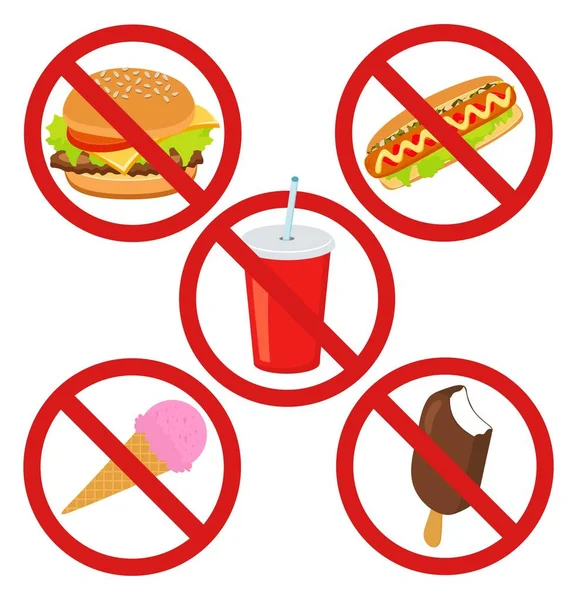 After a night of drinking or bar-hopping with friends, eating whatever you see on the fridge, even junk food, seems like a good idea. Alcohol causes poor judgment in many people, so this can destroy your recovery.
After a night of drinking or bar-hopping with friends, eating whatever you see on the fridge, even junk food, seems like a good idea. Alcohol causes poor judgment in many people, so this can destroy your recovery.
Also, avoid soda because it has addictive substances and high sugar content. Don’t make it a part of your everyday life to consume sugar because this can trigger addiction in your brain.
3. Eat Mindfully
Mindful eating means being conscious of everything that you eat. It means being mindful of how much sugar or calories is in the food. Being mindful makes you conscious to think twice before eating anything.
For example, did you know that one donut contains about 190–300 calories? This is equivalent to the number of calories you’ll lose on a 20-minute jog on the treadmill.
A donut also provides empty calories. It barely contains vitamins or nutrition. Be mindful of what you eat because all of your food choices either affect your body negatively or positively.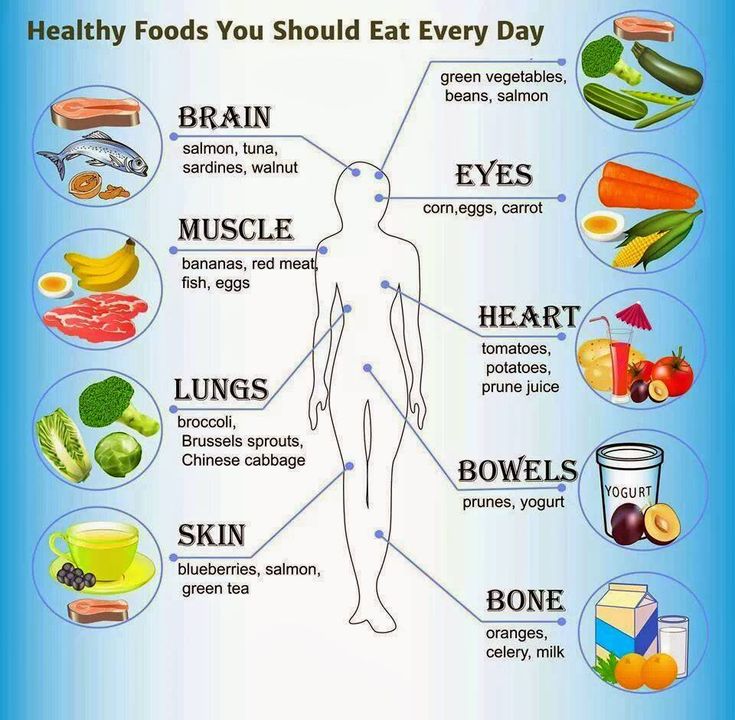
4. Eat Clean and Healthy Foods
If you want to overcome food addiction, your goal is to avoid eating unhealthy meals and cravings for addictive foods. So if you can’t eat high-sugar, high-fat, or highly addictive food, it makes sense that you should start eating healthy. This doesn’t mean, though, that you have to buy everything in the supermarket that contains low-sugar or fat-free foods because, in reality, they have sweeteners that have far more negative effects.
Start eating healthy by resorting to something fresher, like fruits, vegetables, grass-fed meats, and maybe something organic. Once your body gets used to not eating junk food or anything high-sugar or high-fat, you will see that you won’t be having those unhealthy food cravings anymore. Also, don’t forget to drink lots of water.
5. Exercise Regularly
As soon as you’ve decided to start eating healthy, pair it with exercising regularly. Why? When you’re experiencing pain when exercising, it will make you realize how much effort you’ve put into burning the calories of that one donut that you ate.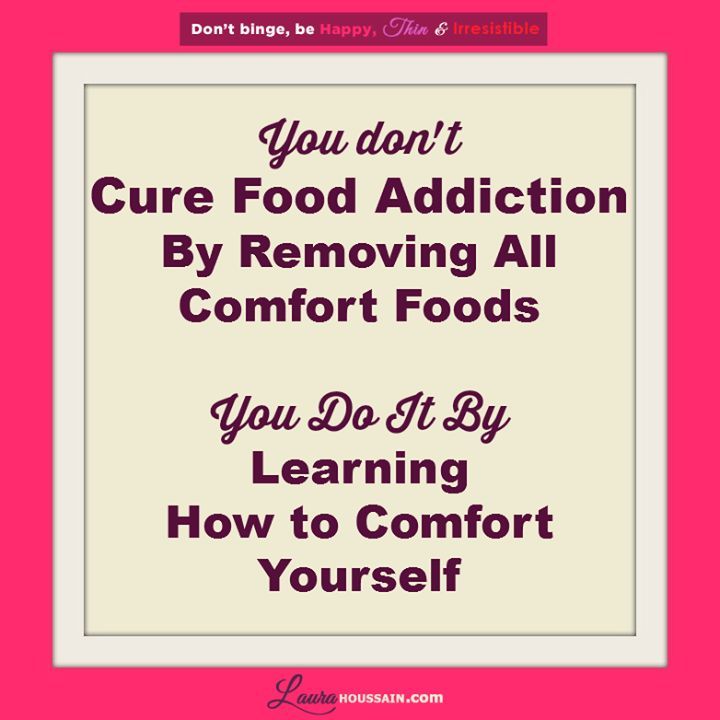
So the next time you get tempted to eat that donut, just remember how difficult it is to exercise. Not only will you feel good exercising, but you could also lose weight. After you’ve overcome your food addiction, set a personal goal of how much weight you want to lose.
6. Overcome Food Addiction with a Friend or Family
It’s nice to know that you’re not alone in your battle against food addiction. Reach out to family and friends to help you get through with it. If you ask your family to do this with you, you can all agree not to buy junk food in your house anymore.
It also helps if you reach out to your friends so the next time you hang out and have lunch, you’d pick a healthy restaurant rather than a fast-food chain. It’s also nice to have a friend watching out for what you eat. It may be annoying, but you know it’s for your own good.
You can also share recipes for healthy meals and cook healthy foods for one another. Going on a diet is much easier if you have a support system helping you overcome food addiction. You can even exercise together.
You can even exercise together.
7. Prepare Your Body for Withdrawal Symptoms
Changing lifestyle and stopping eating junk foods may cause withdrawal symptoms. You should prepare yourself for this. Symptoms of food addiction withdrawal are anxiety, feeling down, mood swings, and anti-social behavior.
By being aware that you may experience this, you can take control of yourself and recognize the symptoms. It can also help if you seek support from a mental health professional when you experience these withdrawal symptoms.
8. Consider Seeking Professional Help
Like any other form of addiction, seeking treatment from a mental health professional can be helpful in the long run. You can also join support groups that are experiencing food addiction. It’s easier to talk to people who make us feel comfortable and can relate to what we experience.
The Key Takeaway
Food addiction is a problem that does not go away on its own. You need to treat it by starting within yourself because if you don’t, it may worsen over time.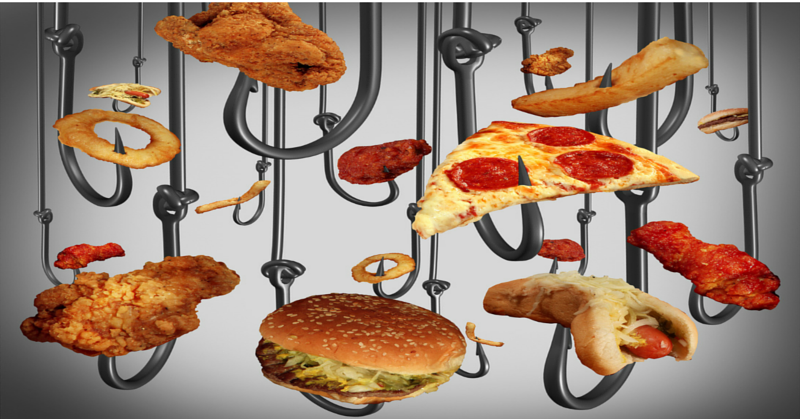 Consider seeking support from a mental health professional.
Consider seeking support from a mental health professional.
You don’t have to fight this journey alone. Help is always available if you look for it.
You can book an appointment for online mental health counseling at Kentucky Counseling Center. Our experts can help you overcome your food addiction and teach you how to replace it with healthier habits.
expert advice / Tips / Basket
How to get rid of food addiction: expert advice
In February, many begin to lose weight by the summer, but not everyone succeeds in the end. Often one of the reasons is a developed food addiction. The expert told Korzinka what it is, where it comes from and how to deal with it.
February 9, 2021 at 12:25 pm Updated 09 February 2021 at 17:45
- Signs of food addiction
- What foods can be addictive and why
- How to deal with food addiction
- Work with a professional psychologist
- Get enough sleep
- Make time for yourself and your interests
1Signs of food addiction
©4 Unsplash, Matt Seymour
Many people think that food addiction is a fictional and frivolous thing. However, psychologist, nutritionist and Gestalt therapist Ekaterina Golovina claims that this is a real problem:
However, psychologist, nutritionist and Gestalt therapist Ekaterina Golovina claims that this is a real problem:
What to do if a person chokes on food
“Any addiction, including food addiction, can be identified by a number of signs. Among them is the loss of control when the addict comes into contact with the object of addiction; the appearance of a feeling of fear and despair at the loss of this object; reducing all vital interests to getting what you want; search for the guilty.
Thus, people with food addiction cannot stop until they have eaten everything. It is common for them to experience a sense of anxiety - it is she who forces the addict to start eating, and after overeating, to experience feelings of guilt and shame. nine0003
“Many food addicts are constantly on diets, studying different nutrition systems and “correct” recipes. But this only strengthens their dependence even more,” says Ekaterina.
At the same time, such people usually shift the responsibility for their food choices to others or look for an excuse for them.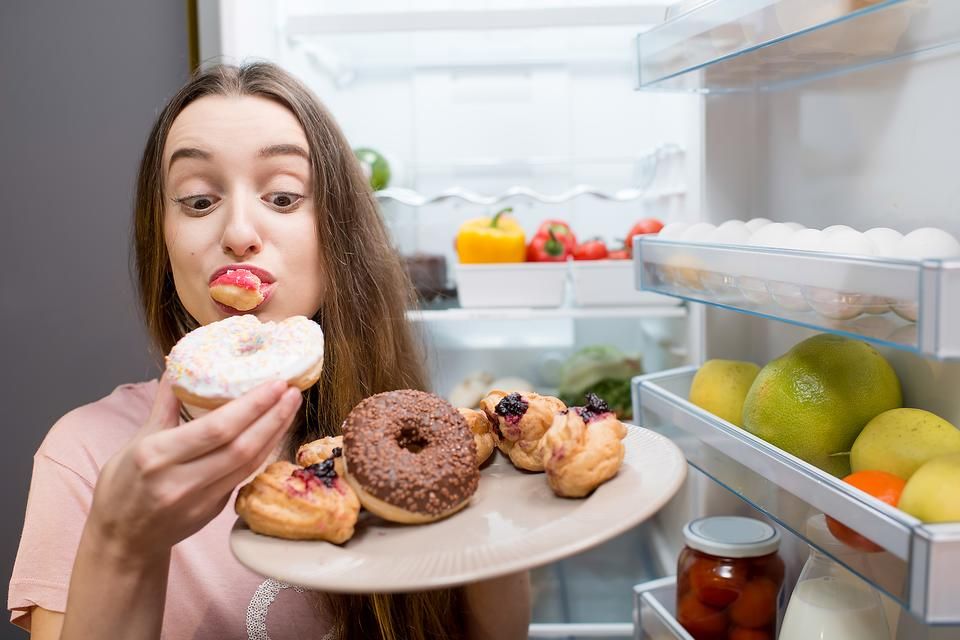 Friends who invited guests to a feast may be guilty; colleagues who gave a forbidden box of chocolates; attractive advertising or discount in the store; bad mood and much more. nine0003
Friends who invited guests to a feast may be guilty; colleagues who gave a forbidden box of chocolates; attractive advertising or discount in the store; bad mood and much more. nine0003
As an initial self-diagnosis, the examiner invites you to honestly answer a few questions from the list below. If the answer to most of them is “yes”, then we can talk about an eating disorder.
- Do you continue to eat when you feel full?
- Do you go to the grocery store for something tasty, even if there is not enough food at home?
- Are you drawn to certain foods that are not healthy? nine0011 Have you ever just wanted to have a snack and didn't notice how much you ate?
- Do you find it harder to give up some foods than others?
- Between eating and walking, do you choose the former?
- Do you experience discomfort from overeating (not only physical, but also psychological, for example, remorse)?
2What foods can be addictive and why
© Unsplash, engine akyurt
By entering a similar phrase into any search engine, you can find many articles and lists of specific products that are supposedly capable of provoking food addiction.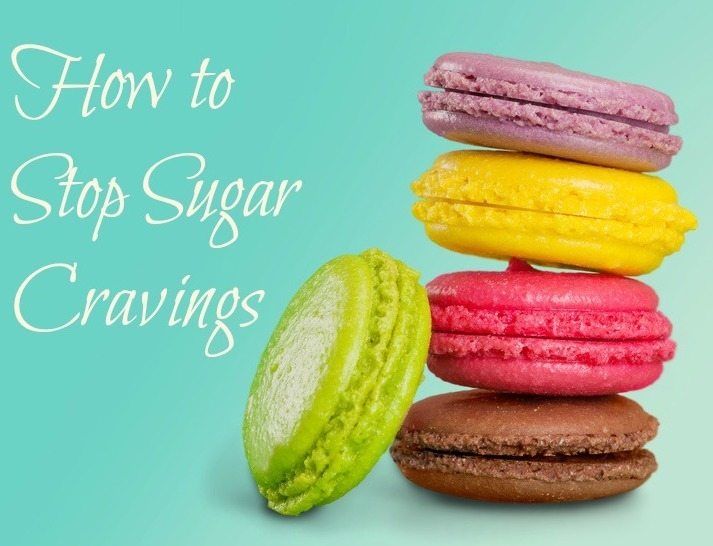 Most often in such lists you can find chocolate and sweets, snacks, fast food, flour and sausage products.
Most often in such lists you can find chocolate and sweets, snacks, fast food, flour and sausage products.
“Some of these foods can actually increase food cravings. For example, a review of a number of studies showed that all foods that cravings are highly processed and high in fat and sugar, ”the expert clarifies. nine0037RIAMO experiment: how to live 3 weeks without sugar and what it will lead to
The combination of sugar, sweeteners and fat stimulates the so-called reward center in the brain, and this, in turn, increases cravings for high-calorie foods. At the same time, dependence on sugar alone is not confirmed by research. Ekaterina suggests what the origin of this myth may be connected with:
“A study conducted on rats showed that animals react more readily to sweetened water than to cocaine. From this it was concluded that sugar can cause an addiction equal in strength to a drug one. nine0003
However, human tests have not confirmed this hypothesis, the expert emphasizes.
A person does not develop cravings for sucrose. In addition, overweight people do not always have a sweet tooth. For one thing, sugar by itself does not lead to obesity or eating disorders. On the other hand, in psychology everything is much deeper.
“There are two types of addiction – sedative and stimulating. Cigarettes and coffee are stimulating, food and alcohol are soothing. If the addict needs to be calmed, then this allows us to talk about his high level of anxiety, which he does not know how to cope with in another way, ”says Golovina. nine0037According to the expert, when we restrict ourselves in certain products, for the psyche they become that very forbidden sweet fruit. This in itself increases anxiety and provokes a relapse. As soon as we put a label on food that we can’t eat it, our brain starts to want it even more. From this we can conclude that each person has his own personal “prohibited” list, to which later addiction can develop.
“Strict food control is the product of great inner anxiety.
In eating therapy, we are building a new way of looking at food - not from the position of "I limit myself", but from the position of "I take care of myself." It helps to master the skills of mindful eating and emotional regulation.” nine0003
3How to deal with food addiction
Stop setting taboos
© Unsplash, Artem Labunsky
Ekaterina Golovina is against eating disorders such as substitutions, detoxes and diets. The expert believes that all this only strengthens the state of addiction:
"Until a person learns to notice anxiety and cope with it without the participation of food, working with nutrition, losing weight and trying to get out of food addiction will be meaningless." nine0037To get rid of food addiction, Ekaterina first of all advises to stop dividing food into good and bad and stop forbidding yourself what we consider harmful:
restrictions sooner or later lead to a breakdown.
4Work with a professional psychologist
© Unsplash, Marco Bianchetti
Food addiction, like any other, often requires information support.
The expert advises solving the problem by working with a professional psychologist, and not by reading books and articles on the Internet. Unlike publications aimed at a wide circle of people, a practitioner can teach a person to recognize his own, individual, emotions and experience them without the help of food. nine0003
“Food and emotions are closely related. From birth, through breast milk, the baby receives maternal warmth, care, love, tenderness and a sense of security. And if emotions are not recognized and expressed, then they are transferred to the sphere of food,” says Ekaterina.5 Get enough sleep
© Unsplash, Laura Chouette
The next point the expert pays attention to is healthy sleep.
“Lack of sleep leads to an increase in the level of cortisol, the stress hormone, which, in turn, causes overeating,” explains Golovina. nine0003
6Make time for yourself and your interests
© Unsplash, Juliet Furst
Also, in order to overcome food addiction, it is important to make time for your interests.
If a person is busy from morning to evening with work and household tasks, most likely he will start to overeat.
“The reason lies in the prefrontal cortex. When it works with overloads, a person's volitional activity decreases. It is important to find time for something pleasant during the day. It can be music, a good movie, a walk in the park, communication, a bubble bath - anything that will help you switch, ”explains Ekaterina. nine0003
Only after completing all the above points, you can start working directly with nutrition - develop sensitivity to hunger and satiety, learn to understand yourself, plan meals and prevent breakdowns. Here it is important to understand the question: why and for what I eat. The expert adds:
"Food addiction can go even deeper than the level of habits, so it is best to consult a specialist - a psychologist or psychotherapist who works with this type of disorder." nine0037Food addictionTips
Lisa Glum
Share:
Media news2
How to get rid of food addiction
Even in antiquity, the father of medicine Hippocrates claimed that a person "is what he eats", believing that man "is what he eats", believing that are rooted in malnutrition.
This saying has not lost its relevance to this day. Forbes Life spoke with psychologist, head of the Russian Society of Psychosomatics Natalia Fomicheva about the symptoms, causes and consequences of food addiction. And most importantly, how to deal with disorders and eating disorders
The term "food addiction" was first proposed in a study for the peer-reviewed journal Neuroscience & Biobehavioral Reviews. Later, the scientific community questioned this formulation: you can’t call addiction what is aimed at maintaining life. Otherwise, one would have to talk about dependence on sleep, air and sunlight.
Finished reading here
Dependence in the classical sense is divided into non-chemical (addiction to gambling, social networks) and chemical - it includes attraction to alcohol, narcotic substances.
Simply put, addiction occurs with a stimulant, which is not a need of the body. Therefore, in relation to food, it is correct to speak of eating disorders. nine0003
Can coffee then be addictive? On the one hand, coffee does not affect the body with the same intensity as alcohol. On the other hand, with excessive consumption of caffeine, the same mechanisms can be observed as with chemical dependence. Coffee increases anxiety, so it is better for people prone to it to stop drinking this drink. Psychoactive substances are highly stimulating to the nervous system and cutting down on them can be difficult.
So, it is impossible to overcome food addiction, as well as to stop depending on food in general, because food does not cause pathological cravings. Uncontrollable overeating, purposeful fasting, obsessive thoughts about food are all related to an eating disorder.
nine0003
Related material
Why food addiction occurs
There are lists of food addiction symptoms online. But everything is not so simple. There are three groups of factors that determine eating behavior: biological, psychological and environmental. And in each group, predisposing, triggering and reinforcing factors can be distinguished. Each person has their own unique combination of these factors. For example, whatever the psychological factors, in the absence of a genetic predisposition, a teenage girl is likely not to develop anorexia nervosa, even if she goes on a strict diet. nine0003
- Predisposing factors
The psychological predisposing factor that provokes addiction to food plays a huge role.
For example, 95% of women who suffer from compulsive overeating and have a body mass index above 35 were sexually abused in childhood or adolescence. The trauma caused severe mental damage, which translates into attempts to solve internal problems through food. The bigger the problem, the more food.
- Triggers
Adolescent anorexia can be provoked by a trigger situation, when a guy hints to a girl in love with him that she is a bit fat. Naturally, the girl goes on a diet. This moment will be the starting point when genetic and mental predispositions to diseases are connected, supplemented by the pressure of society that imposes beauty standards.
- Aggravating factors
Factors that exacerbate eating problems are important.
For example, high anxiety will worsen the condition of a person with already “knocked down” eating habits. Specialists consider all factors, including psychological ones, to identify the real problem. nine0003
Why eating disorders are dangerous
Eating problems can lead to a whole range of health problems. At a minimum, metabolism will be disturbed, problems with the gastrointestinal tract will appear. What is often referred to as food addiction often accompanies social phobia, depression, anxiety disorder, and other life disorders.
When a woman is embarrassed to go to the beach because of her unpresentable, in her opinion, appearance, worries about her figure - this indicates a whole range of problems. The worst option is the development of life-threatening mental illness. With anorexia nervosa, mortality reaches 12-13%.
In situations where the eating disorder is accompanied by type 1 diabetes, this figure rises to 30%. nine0003
As a result of a number of studies, it was noticed that in bulimia nervosa, electrolyte balance is disturbed - those processes that are associated with water-salt metabolism in the body, which can lead, if not to sudden cardiac arrest, then to serious heart rhythm disturbances.
Anorexia nervosa has a mortality rate of 12-13%. In situations where the eating disorder is accompanied by type 1 diabetes, this figure rises to 30%.Deviations in eating behavior cannot be ignored. In some cases, this can be dealt with on your own, but it is better to go to the doctor. Recommendations from the Internet for popular queries "causes of food addiction" and "treatment of food addiction" are not the best helpers in this matter.
As practice shows, patients make an appointment with specialists only when health problems can no longer be ignored. nine0003
What symptoms to see a doctor for
Eating disorders can manifest themselves in different ways, and its recovery requires an individual approach. Bulimia nervosa is not necessarily expressed in the fact that the person suffering from it causes vomiting, abuses diuretics, laxatives. It also affects those who, having had a hearty dinner in the evening, go to the gym in the morning to burn calories - not for the sake of physical activity, but to compensate for the breakdown.
With anorexia nervosa, bulimia nervosa and psychogenic overeating, the help of specialists is indispensable - they usually start with a psychologist. In difficult situations, a team works: a psychiatrist or psychotherapist (often a selection of antidepressants or anti-anxiety drugs is needed), a therapist (to assess the consequences and decide on further treatment) and specialized specialists - a cardiologist, endocrinologist, gynecologist (nutrition problems deal a strong blow to the female reproductive system).
Doctors will determine the risks associated with the mental and somatic spheres, and then they will prescribe the appropriate treatment. When overeating leads to weight gain, people go to specialists to get rid of excess weight. But this is not a symptom, but a result. nine0003
While approximately equal numbers of men and women suffer from psychogenic overeating, it is mostly women who are affected by such types of food addiction as anorexia and bulimia. In anorexia nervosa, the person does not realize that he is sick, unlike bulimia. With anorexia, they lose weight to critical numbers, but they believe that everything is in order. With bulimia, thoughts arise that such processes go beyond the norm, but it is a shame to admit this - the girls do not tell their relatives and partners about the problem, and also do not go to the doctors. nine0003
Bulimia and anorexia are cases when it is necessary to go to a specialist.
He will not say “stop doing this and that, shame on you.” The patient cannot cope with these diseases on his own for a number of reasons, including because he does not have internal resources, mental capabilities.
Insensitivity to bodily signals also leads to the fact that a person feels the need for food when hunger reaches its maximum intensity.Overeating does not always translate into weight gain. In general, weight often may not correlate with eating behavior: for example, a low body mass index is not always accompanied by eating disorders. And vice versa. In some cases, the weight remains the same when a person “sits down” on a food swing: he adheres to a diet until a conditional Friday, and breaks down on the weekends. And so on in a circle, and the weight remains stable due to good genetic data. In such cases, it seems that these are just "troubles", and you can get rid of this kind of psychological dependence on food without the help of a doctor.
In fact, this is a delusion - after all, such behavior takes a huge amount of physical and mental resources. So why not spend them more wisely, for example, on self-realization? nine0003
One of the saturation signals is a change in the saturation of the taste. When the dish in the process of eating becomes less tasty, it's time to stop.Related material
Healthy Eating Checklist
To check if your eating habits are normal, four criteria will help: relying on the physiological feeling of hunger, satiety, monitoring the effect on the body of certain foods, and not having food anxiety.
- Distinguishing real hunger from false
First, you need to learn to distinguish real hunger from false.
You need to eat when there is a real need, and not when the alluring aroma of fresh pastries comes from the bakery. Real hunger builds up gradually, with a feeling of emptiness in the stomach and slight discomfort. Insensitivity to bodily signals also leads to the fact that a person feels the need for food when hunger reaches its maximum intensity. In this case, he will probably move. It is important that we do not eat the same amount of food on all days - and this is normal. By the way, if you suddenly want to eat a particular product, this is not a sign of hunger, but of psychological experiences that need to be addressed through food. nine0003
- Notice the feeling of fullness
Don't gobble up the entire contents of a huge plate just because you paid for it. You need to notice satiety signals in time and stop, even if you ate very little. Tracking them is more difficult than the feeling of hunger.
Therefore, meals require a lot of inclusion, focusing attention. Saturation is not associated with a feeling of heaviness and drowsiness - it is either overeating or problems with the pancreas. Ideally, after eating, there should be a feeling of activity, energy, warmth. One of the satiety signals is a change in flavor saturation. When the dish in the process of eating becomes less tasty, it's time to stop. But in order to notice such small things, it is important to eat slowly and be focused on food, and not on social media content. nine0003
- Tracking how foods affect your well-being
You need to develop the ability to notice how different foods affect your well-being. It is difficult to give specific recommendations here, because the impact is quite individual. For example, milk with cinnamon, molasses and nutmeg in the evening will lead to a state of calm, while spicy food will invigorate.
This eating habit forms the basis of the intuitive eating model. This ability works great in childhood: two-year-olds can determine what is right for them if their parents give them a choice. But not everyone grew up in an intuitive food space, and besides, food in kindergartens is real food fascism. Parents also act to the detriment of the child when they force him to eat the entire portion to the end. Therefore, innate settings are lost. They can be returned if you notice how the body reacts to food. With chronic diseases, it is more difficult to restore such a compass: a person with diabetes will invariably be drawn to sweets. nine0003
Food should not cause anxiety
Food should not cause anxiety in any way. It is an essential component of life. If you eat and think with horror about calories, plan a diet so as not to gain weight or lose weight, this signals a problem.
Even the very obsessive desire to get rid of food addiction can indicate that something is going wrong.
Related material
How to start eating right
A person has a genetic predisposition to high carbohydrate foods. In a primitive society, it was valuable to find something sweet like sugar cane and get glucose - a source of energy. Man has not changed and still prefers energy-intensive products. Unfortunately, progress has outstripped evolution: getting fast carbohydrates is extremely simple. On the other hand, junk food cravings are associated with chronic stress. Heavy, sweet, fatty foods give temporary relief. As children, we are not taught to overcome stress, so we regularly “seize” problems. nine0003
In order to start eating right, it is important to give up prohibitions - this breeds breakdowns.
The psyche is such that it is difficult for a person to keep himself within the limits. You can start restoring your eating behavior with a food diary. This will allow you to control what you eat on the machine: daily from 1500 to 3000 calories can be consumed imperceptibly, without awareness. It is also important to find the reason that forces you to eat, regardless of the feeling of hunger. For example, there is a bag of cookies in the car, and you start snacking in traffic. Removing it is not the way to solve the problem. It is important to think about what is hidden behind such an action. Probably anxiety or aggression. Then you can try to breathe deeply or start singing along with your favorite performer - in other words, find an option to cope with a complex of emotions somehow other than through food. nine0003
How to manage eating habits remotely
- Create a ritual and monitor your sleep patterns
Eating habits have been greatly affected during self-isolation.
Fear of the unknown, anxiety for loved ones, disruption of the usual daily routine and a sharp decrease in the ability to overcome stress - go to the pool or take a walk in the park - all this negatively affected even those who had no previous problems with food.
Today, many people continue to work remotely, and for them a refrigerator filled with food can become a test. To cope with the desire to eat, it is important to complicate access to products with the help of a ritual (for example, snacking on the same cookies, previously poured onto a plate and using cutlery), which will allow you to become aware of your actions and prevent automatism. It does not hurt to also establish a sleep pattern - lack of sleep leads to overeating. nine0003
- Refuse ready-made products and do not buy in reserve
Also, do not bring food from the store that is easy to take out of the package and does not need to be cooked.
